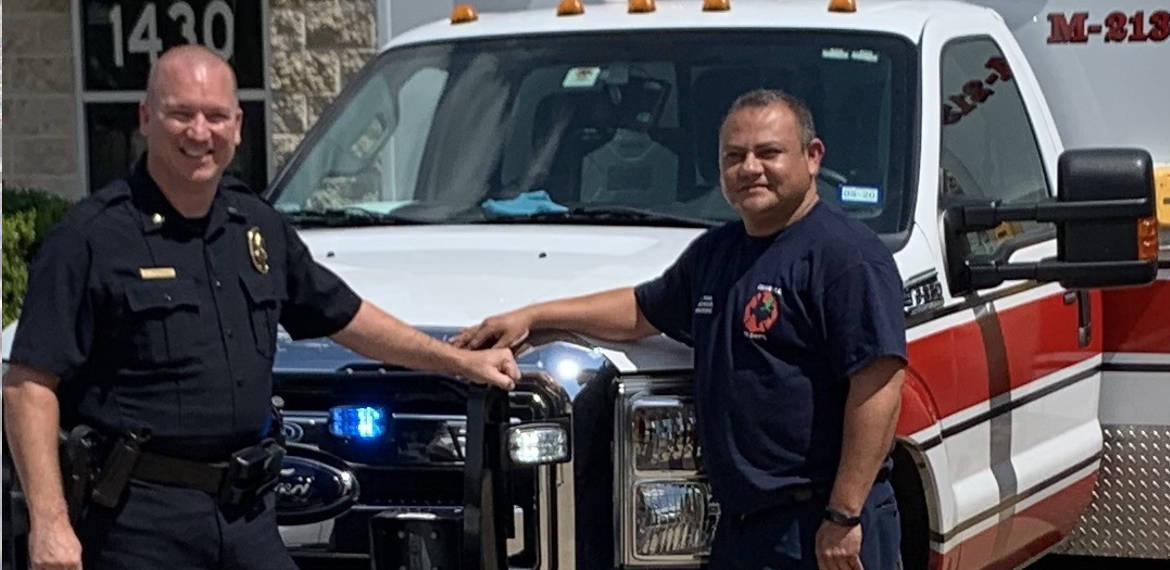.png)
Why Mental Health Matters In First Responders
Updated January 7, 2026
There are more than 2.8 million career first responders in the US, according to the Department of Commerce, and another 62.6 million volunteer men and women who serve as first responders. Not surprisingly, 30% of first responders develop significant behavioral health conditions: that’a a staggering 846,000 career first responders (a number equivalent to the entire population of San Francisco) and does not account for those who never report their conditions, or for the countless number of volunteers.
Among these groups, depression, anxiety, post-traumatic stress symptoms, divorce, and substance abuse are rampant. In a study by the Substance Abuse Mental Health Services Administration, results showed approximately 50% of male firefighters reported heavy or binge drinking alcohol, and 39.5% of female firefighters reported binge drinking to cope with the effects of work. Additionally, 6.6% of fire and Emergency Medical Services (EMS) professionals reported having attempted suicide, as compared with just 0.5% of civilians.
In 2023, 167 first responders died by suicide, the predominant population being 122 of our brothers and sisters in law enforcement, according to BlueHelp. These harrowing numbers give us just a glimpse into the struggles with mental health faced by first responders within our own communities.
Words From Our First Responders
“I don’t know why this is hitting me harder than everyone else.”
“Why doesn’t that guy suck it up like the rest of us.”
“I’m fine. I’m fine. I’M FINE.”
“I haven’t slept in a week, but why else would they have made energy drinks?”
“I’m sorry it’s the middle of the night but I can’t take it anymore.”
These are all comments and phone calls our trauma therapists have had the opportunity to field, and they display the reality of many first responders. In a profession where men and women will drop everything they are doing to care immediately for their community, why then do these same individuals have such trouble reaching out for help on their own?
Not Tough Enough?
There is unfortunately a certain stigma against reaching out for mental health care in the culture of first responders. While this is slowly but surely changing for the better, many kitchen table conversations revolve around “this soft new generation of first responders who can’t deal with things.” For individuals at any point in their first responder career, dealing with your mental health is not a matter of being a “soft new rookie” or “tough enough salty veteran.” Post traumatic stress (PTS) from the experiences of the career and the impact it takes on your personal life is real and symptomatic whether actively recognized or not.
While there are noticeably larger symptoms of PTS such as nightmares, flashbacks, and location specific triggers, there are smaller symptoms present in the forms of trouble sleeping, mood swings, and constant fatigue, to name a few. No person is machine enough to withstand the constant barrage on their brain chemistry of sleepless nights, high stress scenarios, joyful camaraderie, and intense sadness for years at a time. Even if there is not just one calamitous experience they can point to, the overarching career and call accumulation of a first responder will have a mental price to pay in one way or another.
At a recent conference full of first responder attendees, and they were all asked by the presenter to write down a word or phrase describing how their personalities and demeanors had changed over the course of our careers. A common answer was “being far less trusting of people than I used to be," along with “I am a much angrier person,” “I’m highly anxious around crowds,” Tthere are random things that set me off”, and “I always feel on edge at home.” These are some of the quieter costs to first responders, not as prominently noticed as nightmares and panic attacks. Despite the changes to a first responder’s mental health both large and small though, there is often still denial of anything wrong. After all, first responders are a community who fix others’ problems.
Make The Call!
As any first responder can tell you, some civilians call 911 for incredibly dumb reasons, regardless of what the general population believes. One client we interviewed once ran lights and sirens to a home just to have the homeowner ask him to pick up a fresh pack of cigarettes. Regardless of the scenario, there will be first responders available for the caller.
First responders, if you are dealing with a mental health crisis in your life, struggling with long running PTS, or just want to debrief from work or home life, there are counselors available who are trained and willing to listen to your chaotic stories and dark humor, without having a meltdown themselves. There are several approaches to trauma counseling and counselors willing to find what works for you. You do not have to count the costs quietly on your own.
If you feel comfortable, take the first step, and reach out for help from a peer support member, close friend, family, or counselor. Your mental health absolutely matters, and it is not worth struggling alone. When you're ready, find a first responder specialist at a Lifeologie Counseling location near you!

About Lifeologie
Lifeologie Counseling was founded in 2000 with one goal in mind — to bring a fresh, innovative approach to the everyday problems of life. Creative solutions to stuck problems®. With our unique multi-specialty, collaborative approach, Lifeologie Counseling helps individuals and families heal their wounds and break out of old, unhealthy patterns.




